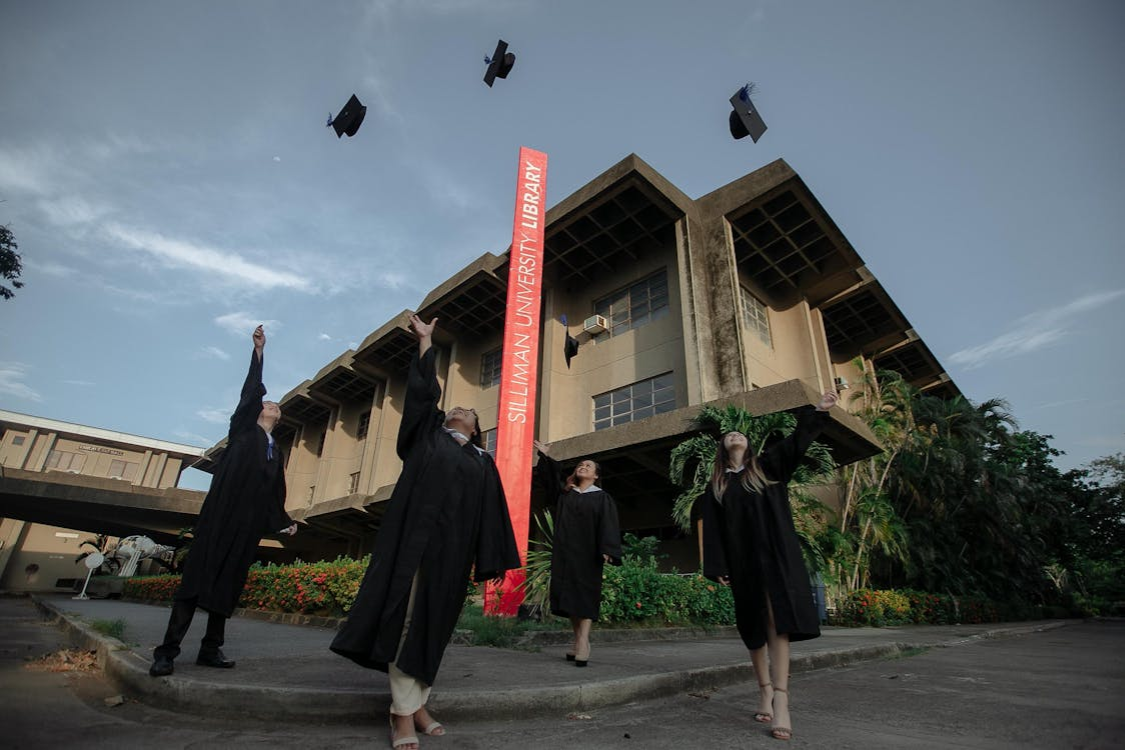Hiring Filipino professionals without understanding their academic background can lead to mismatched expectations, poor performance, and costly rehiring.
The Philippine education system looks similar to the U.S. on paper but follows different structures, grading scales, and licensing standards. Terms like “course,” “units,” and Latin honors can be misleading, while school names may signal high-level training or low-quality programs depending on their tier. Many employers also overlook the role of government agencies, technical education, and nonformal education programs that support skills needed in various sectors like business process outsourcing, information technology, and digital marketing.
This guide explains how the Philippine education system works so you can evaluate candidates accurately, verify credentials, and hire top talent confidently.
Why Philippine Credentials Can Be Confusing to Western Employers
Education terms in the Philippines often resemble those used in the U.S., but they don’t always mean the same thing. Credentials may look valid at first glance, yet vary in quality, rigor, and relevance depending on the school, program, or licensing process.
U.S. employers often assume equivalency without checking
Many U.S. employers assume that a bachelor’s degree from the Philippines matches one from the U.S., but that isn’t always true. American and Spanish models influence the Philippine education system, with its grading scale, curriculum-based programs, and national requirements. Without checking for context—such as whether the program followed industry standards or met local government unit oversight—employers may misjudge a candidate’s actual qualifications or essential competencies.
Terminology like “course,” “units,” and Latin honors can be misleading
Filipino students often use terms that sound familiar but carry different meanings. For example, “course” refers to a significant, not a short-term class, while “units” might indicate partial degree completion. Latin honors like Cum Laude may also confuse foreign employers, as the GPA thresholds in the Philippine education system differ from U.S. standards.
Unfamiliar university names may signal prestige—or the opposite
The Philippines has many educational institutions, from elite national universities to lesser-known colleges. Some schools are widely recognized for academic excellence, while others may have limited accreditation or less competitive admission standards. Without a deeper understanding of the university’s tier or reputation, foreign employers may miss out on skilled workers, or hire someone unqualified.

How the Philippine Education System Works
The Philippine education system includes basic education, higher education, and technical vocational training. While it looks familiar to U.S. employers on the surface, the structure, standards, and terminology often differ in key ways that impact hiring decisions.
4-year bachelor’s degrees are standard, but naming conventions vary
Most Filipino professionals hold a 4-year bachelor’s degree, often required for entry-level positions across business, education, and engineering. However, degree titles like “Bachelor of Science in Accountancy Course” or “AB Communication” can confuse employers who are unfamiliar with curriculum-based local programs. These naming differences make it harder to assess relevance and training quality at a glance.
“Course” means central, and “units” may mean incomplete degree
In the Philippines, “course” refers to a student’s major, not a class. For example, a resume that says “BS in Marketing Course” means the person majored in marketing. If a candidate lists “with 60 units completed,” that often means they did not finish their degree, a critical detail when screening for essential competencies or job openings that require a diploma.
Latin honors require different GPA thresholds than in the U.S.
Latin honors are common among graduates from public schools and private institutions. Still, the grading scale is different from the U.S. Cum Laude often requires a GPA of around 1.75 or better on a 1.0 (highest) to 5.0 (lowest passing/failing) scale, but exact thresholds vary by school. Without this context, employers may over- or underestimate academic achievement and a candidate’s readiness to meet industry standards.
Master’s degrees are less common but growing
Although lifelong learning is valued, master’s degrees are still relatively rare compared to Western countries. However, they are becoming more common in engineering, information technology, and digital marketing. These advanced degrees often signal a focus on career progression and strong self-discipline, especially when earned while managing other commitments.

The 3 Tiers of Philippine Universities (And What They Mean for Hiring)
Filipino students graduate from a wide range of educational institutions. Knowing which schools produce top talent and which may fall short helps employers avoid hiring risks and better match candidates to the skills needed in various sectors.
Tier 1: National and elite private universities (e.g., UP, Ateneo, La Salle)
Tier 1 schools like the University of the Philippines (UP), Ateneo de Manila University, and De La Salle University are highly respected. These universities are known for strong engineering, business, and information technology programs. Graduates from these schools often meet global average standards regarding academic performance, English fluency, and remote work readiness. Many go on to work in high-demand industries such as business process outsourcing or digital marketing.
Tier 2: Strong regional universities with solid programs
Regional schools such as Silliman University, Xavier University, and the University of San Carlos deliver solid education in public health, teaching, and software development. While they may not be as well-known internationally, they produce skilled professionals who contribute to the country’s economy and labor force across Southeast Asia. These candidates often have valuable skills and strong work ethics shaped by local community needs and government unit partnerships.
Tier 3: Technical institutes and job-focused colleges
STI College represents this tier, offering technical education and hands-on training designed for immediate employment in fields like IT, customer service, and other vocational roles. These schools prepare students for entry-level positions and often focus on meeting the fast-changing needs of the private sector. While sometimes grouped with technical schools, Mapúa University stands apart as a nationally recognized institution with top-tier engineering and technology programs.
How to spot diploma mills and unaccredited institutions
Some candidates may list schools not recognized by government agencies like the Commission on Higher Education (CHED) or the Technical Education and Skills Development Authority (TESDA). These institutions may issue degrees without meeting basic education standards or national accreditation. Checking for missing accreditation or overly generic programs helps employers avoid hiring unqualified workers and protects job security within your team.

Professional Licenses That Signal Strong Qualifications
Licensing plays a crucial role in verifying the skills and qualifications of Filipino professionals. Many roles in the Philippines require government-recognized certifications that reflect industry standards and readiness to perform in high-stakes environments.
Certified Public Accountant (CPA) – rigorous exam and status marker
Becoming a CPA in the Philippines involves passing a national exam by the Professional Regulation Commission (PRC). It’s one of the most challenging professional licenses in the country and is often required for finance-related roles. A Philippine CPA doesn’t always align directly with U.S. standards but still reflects deep knowledge, technical training, and valuable accounting, financial support, and reporting skills.
PRC licenses for engineers, nurses, and other professions
The PRC also issues licenses for engineers, nurses, teachers, and other regulated fields. These credentials show the candidate has passed standardized exams and met the required experience hours. When hiring for technical or health-related roles, PRC-licensed applicants often offer more substantial alignment with essential competencies and professional standards required in regulated industries.
BPO and tech certifications (e.g., CCNA, CompTIA, Six Sigma)
In fast-moving industries like business process outsourcing and information technology, employers will often see certifications such as CCNA, CompTIA, or Six Sigma on Filipino resumes. These are not government-issued but are widely recognized in the private sector and indicate up-to-date knowledge in machine learning, digital infrastructure, or process optimization. They also demonstrate a focus on lifelong learning and a desire to remain competitive in the global workforce.
Why licensing matters more in some roles than others
Licenses matter most in fields with legal or technical accountability, like engineering, healthcare, or finance. Licensing may not be required for roles in digital marketing, project coordination, or administrative support but can still reflect initiative and self-discipline. Weighing licenses alongside real-world experience ensures that hiring decisions are fair and based on the skills needed for the role.

Red Flags to Watch When Reviewing Filipino Educational Backgrounds
Some resumes may look impressive but lack key details that affect performance, job fit, or long-term success. Identifying education-related risks early can prevent mismatches and improve hiring results.
Vague or overly broad degree names without explanation
Degrees listed without clear focus areas—such as “Bachelor of Science” with no major—or those labeled simply as “Management” or “Information Systems” can raise questions. In the Philippine education system, for hiring, clear specialization matters, especially in fields like engineering, digital marketing, or technical education. Asking candidates to clarify their exact field ensures alignment with the job.
Unrecognized schools or missing accreditation info
Take extra care if the school name is unfamiliar or missing from government databases. Some unaccredited institutions operate without approval from the Commission on Higher Education (CHED) or fail to meet recognized industry training standards. Hiring from these schools without proper verification can affect your team’s ability to meet industry expectations and may lead to weaker performance in high-demand roles.
“Training certificates” presented as full credentials
Nonformal education programs are standard in the Philippines, but short training courses should not be confused with full degrees. Some candidates list certificates from workshops or online classes equivalent to college-level education. These programs can show initiative and skills development, but they shouldn’t replace verified academic qualifications for roles that require formal training.
Lack of context for English fluency or tech skills
Fluent English is standard among Filipino professionals, but resumes that claim “excellent communication skills” without details can be misleading. Similarly, listing software names without describing use cases makes it hard to judge skill level. In roles that require clear writing, remote communication, or tool-specific experience, employers should look for examples, test results, or job-based applications.

How to Verify Degrees and Credentials from the Philippines
Even strong resumes need to be backed by verifiable records. Since the Philippine education system includes public schools, private institutions, and technical programs, verifying credentials ensures accuracy and helps you spot top talent with real qualifications.
Ask candidates to provide transcripts, license numbers, or proof
A direct but respectful request for documents helps confirm education and licenses. Ask for transcripts, PRC license numbers, or proof of completion for technical vocational or digital marketing programs. Candidates with nothing to hide will usually respond quickly and provide what’s needed to confirm their background.
Check school websites or PRC’s license verification system
Many educational institutions and government agencies in the Philippines offer public databases. The Professional Regulation Commission (PRC) allows you to verify license status for CPAs, engineers, and nurses. School websites or official social media pages can confirm whether a school is recognized or linked to government training programs.
Use third-party verification services if needed
When in doubt, consider outsourcing the process. Several companies specialize in verifying foreign national credentials, including academic records and professional licenses. This can be helpful if your internal team lacks the time or knowledge to confirm a candidate’s background across various disciplines.
Ask clarification questions in interviews without sounding accusatory
Ask open-ended questions during the interview if something on the resume seems unclear. Instead of saying, “Is this school real?” you might ask, “Can you tell me more about your program and what kind of training you received?” These questions encourage transparency while maintaining a respectful tone aligned with Filipino culture.

When and How to Weigh Education in Hiring Decisions
Education plays a role in hiring but shouldn’t be the only factor. In the Philippine labor force, credentials vary widely, and focusing too much on school names or degrees may cause you to overlook candidates with stronger real-world skills.
Prioritize relevance and application over prestige alone
A degree from a top school is a strong signal, but what matters more is how the education applies to the role. Look for candidates who can show how their studies prepared them for current engineering, business, or information technology job requirements. This approach supports fairer hiring and better job performance.
Combine credentials with real-world project examples
Filipino candidates often bring experience from private sector companies, government programs, or business process outsourcing firms. Ask for specific project outcomes, client results, or tech tools used. This helps you match their education with practical skills and lifelong learning habits that align with your company’s goals.
Consider licenses a plus but not the only factor
Professional licenses are helpful, especially in technical fields, but they don’t always predict performance. Some strong candidates may have skipped licensing due to other commitments or industry focus. Evaluate licensing alongside other signs like self-discipline, cross-cultural experience, or alignment with your team’s workflow.
Use tier and field of study to contextualize experience
Understanding where a school fits in the country’s education system helps set fair expectations. A Tier 2 graduate with hands-on training may outperform a Tier 1 graduate with little experience. Look at the degree type, specialization, and past roles to gauge how well the candidate fits the skills needed for the position.
How to Interpret the Philippine Education System for Better Hiring
Hiring Filipino professionals requires more than scanning resumes. Degrees, credentials, and licenses from the Philippine education system must be viewed in context, especially when unfamiliar terms, school names, or certification types appear. Focus on relevance, verification, and how well the candidate’s training aligns with your role. Understanding school tiers, spotting red flags, and recognizing valuable skills from technical education or business process outsourcing backgrounds can help you find top talent and avoid costly hiring mistakes.
Frequently Asked Questions
What does “BS in Accountancy Course” mean on a Filipino resume?
It means the candidate majored in Accountancy under the Philippine education system, where “course” refers to their field of study.
How can I verify if a Filipino university is legitimate?
Check the university’s accreditation through government agencies like CHED or TESDA to confirm its legitimacy.
Is a Philippine CPA equivalent to a U.S. CPA?
A Philippine CPA license shows strong accounting skills but follows different standards, which is not equivalent to a U.S. CPA.
Do I need to verify licenses when hiring remote Filipino workers?
Verifying professional licenses helps confirm qualifications and ensures the worker meets your job requirements.
Are English certifications like TOEFL or IELTS standard in the Philippines?
They are not required but are sometimes listed by Filipino candidates to show fluency for global job opportunities.
References
- Commission on Higher Education. (n.d.). https://ched.gov.ph/
- Philippine Qualifications Framework. (n.d.). The Philippine education and training system: Overview of Philippine education. https://pqf.gov.ph/Home/Details/16
- Republic of the Philippines, Department of Education. (n.d.). K to 12 basic education curriculum. https://www.deped.gov.ph/k-to-12/about/k-to-12-basic-education-curriculum/
- Republic of the Philippines, Professional Regulation Commission. (n.d.). History. https://www.prc.gov.ph/history
- Respicio, J. L. (2024, December 3). Legal basis | Introduction to labor law: Fundamental principles/concepts. Labor Law and Social Legislation. https://www.respicio.ph/bar/2025/labor-law-and-social-legislation/introduction-to-labor-law-fundamental-principles/concepts/legal-basis




